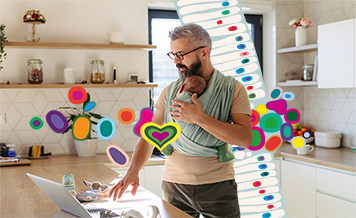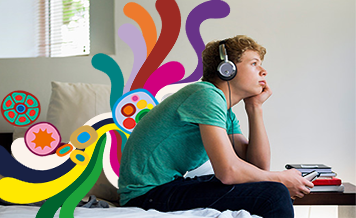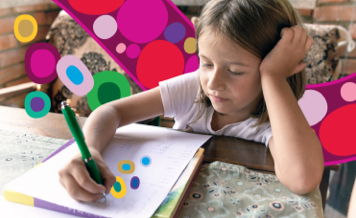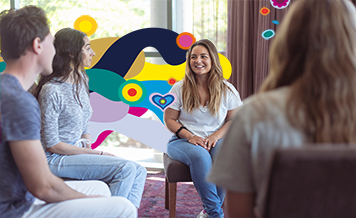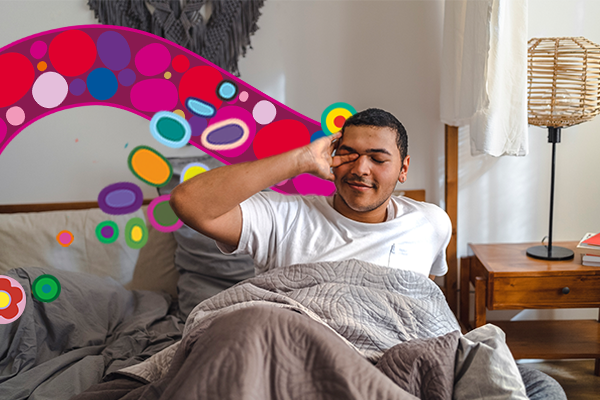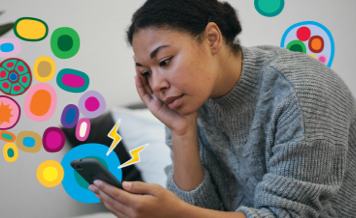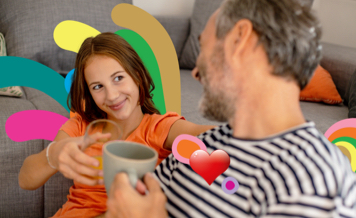Depression in children: Signs, support and what to do
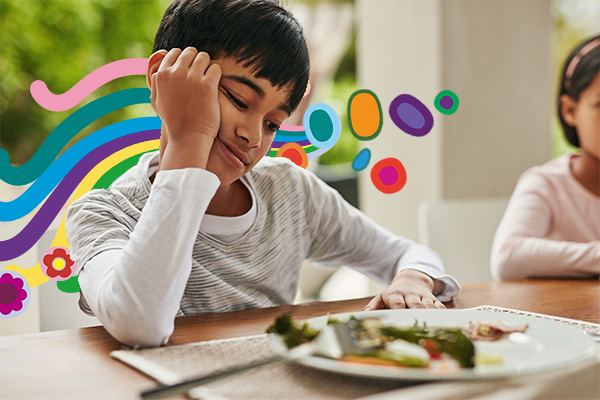
Depression isn’t just something that affects adults — children can experience depression too. It might show up as sadness, anger, tiredness, or changes in how they play or connect with others. And while it can be hard to spot, it’s important to know that children’s mental health matters just as much as their physical health.
Here we explore the possible causes and signs of depression in children, as well as what you can do to help.
What causes depression in children?
Every child is different, and there are many reasons why a child might feel sad or experience depression. Sometimes it’s because of biological factors like genetics; other times it can be because of what’s happening around them.
Some things that might affect a child’s mental health include:
a big loss, like someone in the family dying
being hurt or not feeling safe
being very sick or having a disability
being born prematurely
not having a stable home
having a parent who is struggling with their own mental health
Sometimes, a child may experience depression without a clear cause, but that doesn’t mean that their symptoms aren’t real. Depression is serious and you should always seek help if someone is experiencing symptoms of depression.
Symptoms of depression in children
Children can often find it difficult to explain how they’re feeling, especially if they’re experiencing depression.
Children experiencing depression may:
have low energy and be difficult to motivate
lose interest easily in an activity they usually enjoy
have difficulty listening and concentrating on tasks
make negative comments about themselves
not want to spend time with friends
look for what’s wrong rather than see the positives in situations
be very difficult to please
be irritable, agitated, easily annoyed or upset
seem sad and cry easily and be difficult to soothe
either have no interest in food or overeat
have problems going to sleep or staying asleep, waking early, or sleeping a lot
If your child has been experiencing these symptoms for two weeks or more, speak to your child’s doctor for support.
Other things to look out for
Depression affects children’s thinking as well as their mood and behaviour. They may think they’re worthless or that things will never get better. Some children experiencing depression may also have thoughts of suicide.
If your child talks about taking their own life or hurting themselves, it’s important to take this very seriously. Children sometimes use this as a way of describing their distress rather than an intention to harm themselves – either way, contact Lifeline on 13 11 14 for crisis support and call 000 if you believe a life is in danger.
Treatment for children with depression
Fortunately, depression in children is rare. If your child is diagnosed with depression, however, remember that you’re not alone, and that help is available. Your doctor can work with you to create a treatment plan tailored to your child’s situation and needs, which may include talking therapy with a psychologist. Medication is rarely the first step in treating depression in children.

24/7 Medibank Mental Health Support
Medibank health insurance members can chat to a mental health professional about how they feel and ask questions about a range of mental health concerns for themselves or a loved one and get guidance on what they can do next. Chat online or call 1800 644 325 anytime of the day or night, 7 days a week at no extra cost.~
What you can do to help
If you’ve noticed that a child you care about doesn’t seem like themselves, the first step is to talk about what’s going on and how they’re feeling. Suggest some feeling words like ‘sad’, ‘angry’, ‘tired’ and ‘lonely’ to try and encourage them to identify what they’re feeling.
Let your child know that it’s OK to ask for help and that you’re ready to listen to whatever they want to say. If they’re distressed about a particular situation, you can help them to solve the problem or find ways yourself to improve the situation.
Provide time and space to talk
Make time and space for your child to talk to you – this works best when you aren’t in a rush and won’t be uninterrupted. Children often find it easier to talk when they’re doing something with you, so ordinary activities like playing with you at home, going on a shopping trip, or going for a long drive might help them to open up. Incorporate a favourite game or toy, and choose a time of day when you know your child is less likely to be tired or distracted.
Listen openly, without judgement
You’re trying to create a space where your child can talk to you about anything, so listen openly and without judgement. Let your child have their emotions and express what’s on their mind. Listening carefully and asking questions before responding helps to show your child you understand them.
Be patient
Because the symptoms of depression are often characterised by negative behaviour such as irritability or whining, it’s easy to feel annoyed and to blame or punish the child for their behaviour. Try to be patient with your child and not react in the moment.
Keep a focus on normal routines and activities
When a child is experiencing depression, their thinking can get clouded by lots of negatives. The more they dwell on problems and issues, the bigger these become. Activities and everyday routines can help distract kids from negative thinking patterns.
Get social
Spending time with friends can help to reduce unhappy feelings – it helps to know you’re liked and appreciated. Friends are also a great distraction and can suggest better ways of thinking about situations. If your child seems reluctant to spend time with friends, help them start small – an hour playing with a friend, or suggest a fun activity that doesn’t require too much talking, like throwing a ball or watching a movie.
Keep active and have fun
Regular physical activity can help improve your child’s mood, increase energy levels, and support better sleep — all of which can make it easier for children to cope day to day. Exercise can also reduce stress and help manage big feelings. It gives children a healthy outlet, a sense of achievement, and, when done with others, a chance to feel connected and supported. Even a little exercise is beneficial. Start by encouraging small amounts of exercise that you know your child is likely to enjoy.
Where to get help
If your life or someone else’s is in danger, call 000 immediately.
If you’re in distress and need help, call Lifeline on 13 11 14 for 24/7 crisis support.
For non-emergency support, your GP or regular health practitioner is often the best place to start. They will be able to assess your individual situation and recommend the best next steps for your recovery.
Medibank health insurance members can chat to a mental health professional about how they feel and ask questions about a range of mental health concerns for themselves or a loved one and get guidance on what they can do next. Chat online or call 1800 644 325 anytime of the day or night, 7 days a week at no extra cost~.
Remember that help is always available, no matter the situation.
How can we help?
I want to know how my cover supports mental health
I need help and want to talk
Related articles
Things you need to know
~Some referred services may involve out of pocket costs and waiting periods may apply.
While we hope you find this information helpful, please note that it is general in nature. It is not health advice, and is not tailored to meet your individual health needs. You should always consult a trusted health professional before making decisions about your health care. While we have prepared the information carefully, we can’t guarantee that it is accurate, complete or up-to-date. And while we may mention goods or services provided by others, we aren’t specifically endorsing them and can’t accept responsibility for them. For these reasons we are unable to accept responsibility for any loss that may be sustained from acting on this information (subject to applicable consumer guarantees).


